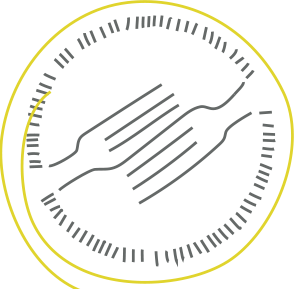What the Fork Are We Eating?
Do you ever stop and really think about the food you eat? Where it comes from, what's in it, how it was made? I have spent the better part of my life analyzing, or perhaps I should say over-analyzing, everything food! And while there are many things about our food supply that disgust me, there is nothing more that infuriates me than genetic modification. A little background...
The What
For those of you who don't know, genetically modified organisms (GMO's) are plants or animals created through gene splicing techniques (also called biotechnology). This technology merges DNA from different species thus creating unstable combinations of plant, animal, bacterial and viral genes that cannot occur in nature (or in traditional crossbreeding). Roughly ALL commercial GMO's are engineered ONLY to tolerate direct application of herbicide and/or to produce an insecticide (despite industry promises to provide other consumer benefits including enhanced nutrition). You are probably wondering why this needs to be done. Shouldn't our food be as nature intended it to be (personally, I think messing with nature is a recipe for disaster in most instances)? Sadly there are many who don't such as Monsanto, the agrochemical giant and leading producer of genetically modified seeds.
The Why
This biotech monster is hell bent on "improving" our agriculture by chemically altering our food among many other things. In a nutshell, according to Monsanto:
- Agriculture needs to produce more food because the world's population is growing
- The world needs better food that's more nutritious
- And we need to find ways to make the process of growing food more efficient and aligned with our environmental needs, so farmers use less water and land, and better utilize things like fertilizer, herbicides and pesticides.
What I find so comical about Monsanto's claim to improving agriculture is that part of their plan is to better use things like fertilizer, herbicides and pesticides. Do you know that Monsanto is the leading producer of the herbicide glycosphate (a.k.a Roundup brand)? That being said, it looks like Monsanto may be looking to improve their bottom line ($$$) rather than agriculture--they are the leading producer of genetically modified seeds AND the most widely used herbicide in farming.
The Who (or What)
Commercial sale of GMO's began in 1994 with the introduction of the Flavr Savr tomato by Calgene (who was later acquired by Monsanto). This tomato was genetically modified to slow the ripening process preventing it from softening while still retaining its color. The FDA stated that special labeling for these modified tomatoes was not necessary because they had the essential characteristics of non-modified tomatoes, there was no evidence for health risks and the nutritional content was unchanged. While the Flavr Savr tomato no longer exists, there are many other crops that are genetically modified. See the Non GMO Project to get complete updated list (SCARY!).
Why Say NO To GMO
- There is NO evidence (other than that "found" by the creators of GMO's) that these "foods" are safe; thus by eating GMO's we are possibly putting our health at risk (I don't know about you but it surely seems like the health of our nation is on the decline; perhaps it's not just the sugar and fat rampant in our food supply that is making us sick?)
- While Monsanto literally calls itself a "Sustainable Agriculture Company", there is nothing sustainable about them. Over 80% of GMO crops are engineered for herbicide tolerance (so the crops go unharmed when chemicals like Roundup are over-used to kill bugs and weeds
- GMO's are also responsible for "super weeds" and "super bugs" that can only be killed with more toxic chemicals than Roundup (one of which is a major ingredient in Agent Orange) than those currently used.
- GMO's are patentable. Thus, biotech companies are allowed to restrict their use. As nature will always prevail, these GMO seeds (due to the wind) inevitably drift into neighboring farms (that are not using GMO seeds). As a result, the biotech companies are given the power to sue these farmers thus threatening farmers, their businesses and their livlihood
Can We Say No To GMO
As much as we may want to say no to GMO's, the task at hand is extremely complicated. Firstly, there is no law that requires labeling of GMO's (although California is looking to pass Prop 37 this November). So, what do we do?
- While buying organic guarantees no GMO's, not everyone can buy organic. Thus, take a look at the Non-GMO Project to learn about which foods and food brands are touched by genetic modification and do your best to navigate through.
- Learn about and support Prop 37. If California passes this one, then perhaps there is hope for the rest of our nation and ultimately our food supply. Check out Big Ag Spends Big Bucks to Keep GMO's in Your Food Secret by one of my favorite reporters, Tom Philpott.
Our reality--we are a big f**king science experiment for biotech. And right now, the only power we have is to get educated, make better choices and to take any action we can. Oh, and check out what Prince Charles has to say on the future of food!

